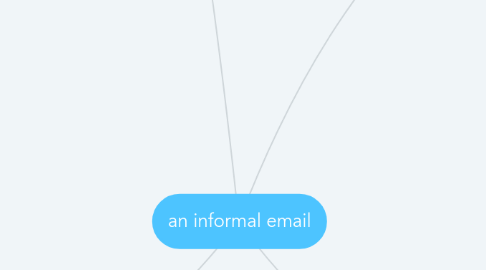an informal email
저자: Ю л и я

1. structure of informal email
1.1. opening formula / phrase (Hi... Dear...
1.2. opening paragraph (Thanks for your letter. Lovely to hear from you. How are you? How are things? Hope you're well)
1.3. body
1.3.1. 1 paragraph introduction explanation reason for writing (I'm sorry to hear/learn ... I'm so pleased to hear ... It's great to hear ... What wonderful news about ...)
1.3.2. 2 paragraph some point with detail (Anyway, I thought I'd write to tell/ask you...)
1.3.3. 3 paragraph some point with detail (Anyway, I was wondering ... Oh, by the way... Hey, did you hear about…? One more thing... As for... By the way, tell me about)
1.4. closing paragraph (Well, I gotta go now. Anyway, I should get going. I’ve got to leave you now. I’d better get going. Well, it’s time to go Make sure you write soon Don’t forget to drop me a line soon. Look after yourself. Take care of yourself)
1.5. closing formula (All my love, Love, Lots of love, All the best, Take care, Best wishes, Best, Regards, Kind regards)
1.6. signature (Yulia)
2. Sample of an informal letter
2.1. Sample 1 Hi Scott, Thanks for the e-mail. It is always nice to hear from people, especially from you, Scott. I have not got any reply, a positive or negative one, from Seibido yet. Let's wait and hope that it will make a BOOK. Have you finished your paperwork for Kaken and writing academic articles? If you have some free time in the near future, I want to meet you and explain to you our next project. Why not drink out in Hiroshima if we are accepted? We need to celebrate ourselves, don't we? Let's have a small end-of-the-year party! Sincerely, K. Nakagawa
2.2. Sample 2 Dear Dennis, Hope you are well. I'm writing to you, yet again, in your capacity as "Answer Man." One of our David English House teachers has just e-mailed me to see if I have any more information on "university listening tests" which are to be administered soon. I have no information about any such tests. Do you? If so, could you please let me know. Thank you kindly. Best regards, Donna
2.3. Sample 3 Hi Dennis, After the exciting Saturday, I guess you've been doing as good as that Saturday. The weather is good, food is good, and studying is good in this season. I like this season the best. Oh, well, this introduction may remind you of students' writing, so I should stop it now. To make a long story short (or the introduction short?), I am sending you this message to say thank you. I said so for the Saturday already. Today's "thank you" is to the vocabulary test, which was delivered to me today. On the letter from Professor Tanaka, your name was also written, so I assume that you and Prof. Tanaka worked together to develop this test. To tell you the truth, I like it, and I do want to use it for my research and classes. He said that an online delivery is being planned. I wonder if anyone can use the test. If so, this is really great. Sending you a thank-you message, I would like to ask you a favor. The attached is a thank-you letter to Prof. Tanaka. Would it be too much to ask you to print it out and hand it to him? If so, would you send me back a "Do it yourself" message. I'll send it by regular mail. Or would you let me know his mail address. (I hope he is a regular mail user. In our school, there are still quite a few senior professors who don't use e-mail at all. Yes, AT ALL! Can you believe that?) OK, Dennis, sorry for interrupting you with my favor. Hope to see you soon again. Best wishes, MAEDA Chiaki Hamada City University
3. topic or purpose of an informal email
3.1. to provide an important information
3.2. to ask for some advice
3.3. to share some news
3.4. to write about all ideas together
4. 'informal' language of email
4.1. contracted forms (can't, isn't, haven't)
4.2. common phrasal verbs (hang out, put up, check out, bring up, carry out)
4.3. colloquail expressions (How are you doing? you should definitely, you can’t miss, drop me a line, etc.
4.4. flexible punctuation (using interjection (oh, em, ah), dashes “–”)


